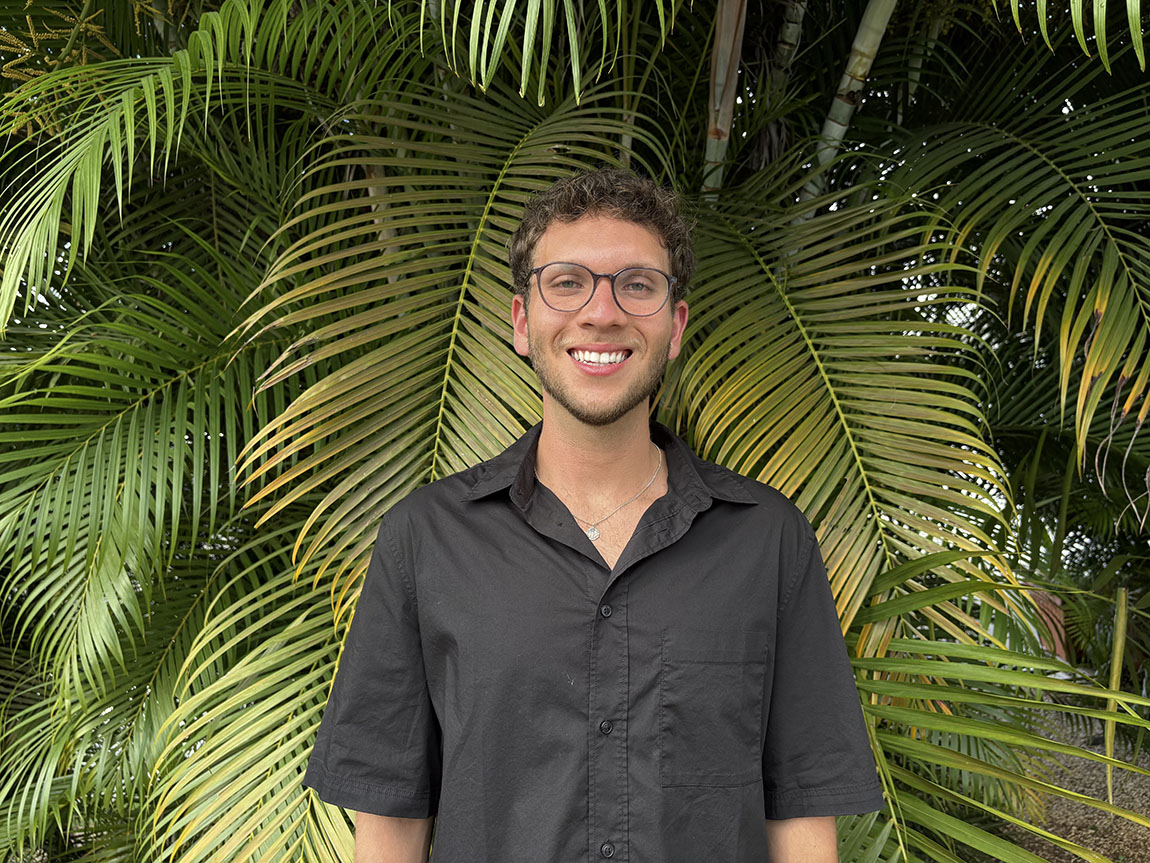Summer Research: Adrián Padrón-Curet ’26 Uses Interviews With Puerto Ricans to Inform a Play He’s Writing
Padrón-Curet, a theatre and Spanish double major, conducted fieldwork in Puerto Rico and in the United States to learn about Puerto Rican theatre and society in the mainland and in the diaspora.Friday, August 15, 2025 10:06 AM
 Adrián Padrón-Curet ’26
Adrián Padrón-Curet ’26More than 70 Muhlenberg students are conducting research this summer — about 60 on campus, about 10 more remotely, and a handful of others through other institutions.
Research challenges students to apply what they’ve learned in the classroom, hone their discipline-specific skills, and make an impact in their field. Learn more about Muhlenberg’s transformative summer research program.
Adrián Padrón-Curet ’26
Hometown: Guaynabo, Puerto Rico
Majors: Theatre and Spanish
Describe your research.
My research, “Borinqueñísimo,” focuses on learning about Puerto Rican theatre and society in the mainland and in the diaspora. The island has been a colony of the United States since 1898, allowing many islanders to migrate to the country. Today, there are more Puerto Ricans in the U.S. than on the island, as many leave due to political, natural, and work instabilities. By conducting fieldwork in Puerto Rico and in the United States, I have been reading and seeing theatre that discusses Puerto Rican topics, specifically themes of migration and nostalgia. The outcome of this research project will be to write a play, which is in process!
Why are you interested in research generally and in this project specifically?
By doing research, I’ve had the opportunity to learn more about Puerto Rico’s theatre, culture, and politics. I have interviewed various islanders and listened to their stories and their opinions about cultural and political issues and mainstream and local art. It has also allowed me to explore and enhance my creative writing, as well as connect with other theatre-makers who are interested in writing about political theatre. Research not only helps students learn more about their field of study, but it also opens a window of possibilities for connection and inspiration. It is through projects like these, regardless of any field of study, that we start building the paths to our future and progressing exponentially.
“Research not only helps students learn more about their field of study, but it also opens a window of possibilities for connection and inspiration. It is through projects like these, regardless of any field of study, that we start building the paths to our future and progressing exponentially.”
What are the most challenging and rewarding parts of your research?
What I enjoy most about my research project is that I get to talk to and interview many people who work and study in various fields. I have been very amazed by the stories and advice Puerto Ricans tell me. As a Puerto Rican myself, I have learned that I am not writing about my point of view of the island but rather about many people’s stories that want to be heard and understood. The part that is most challenging about this is that I want to hear people’s opinions about a majority of topics, but I have to limit myself! Also, with the writing process, I sometimes want to write about so many things that I don’t know how to fit them all into the play!
“Throughout my years at Muhlenberg, I have tried to participate in many onstage and backstage roles so that I can learn which fit me best. Through this experience, I’ve learned that playwriting is an area that has broadened my creative vision and allowed me to serve as a middle ground between reality and theatricality.”
How is this experience shaping your understanding of what you want to do in the future?
Throughout my years at Muhlenberg, I have tried to participate in many onstage and backstage roles so that I can learn which fit me best. Through this experience, I’ve learned that playwriting is an area that has broadened my creative vision and allowed me to serve as a middle ground between reality and theatricality. Although I am still deciding whether I’ll pursue my master’s degree in theatre or go to pastry school right after college, I believe that “Borinqueñísimo” will be the first play out of many to come.
At Muhlenberg, Padrón-Curet is president of Comunidad, the affinity group for Latine/x students and allies on campus; a member of Phi Sigma Iota, the international foreign language honor society, and the International Students Association; and a Spanish conversation partner.
